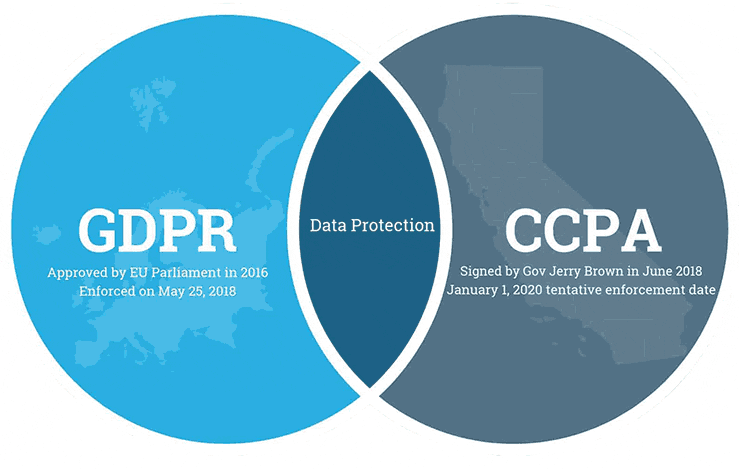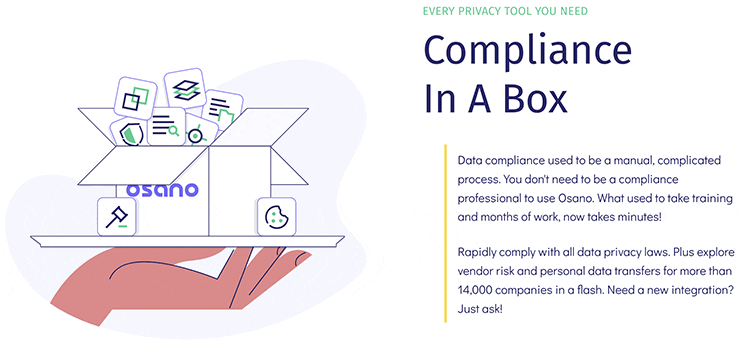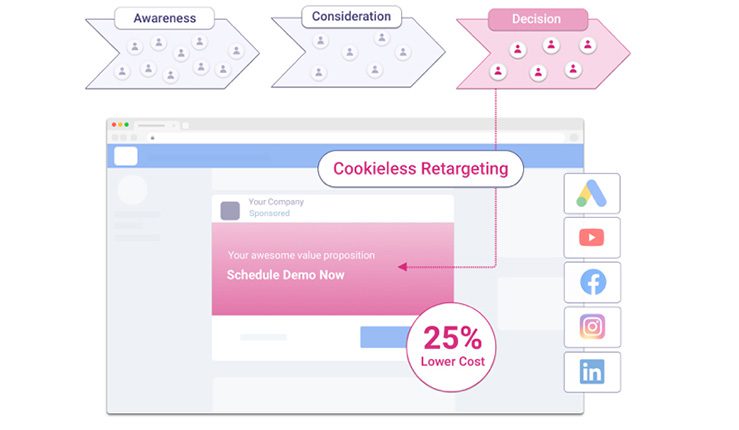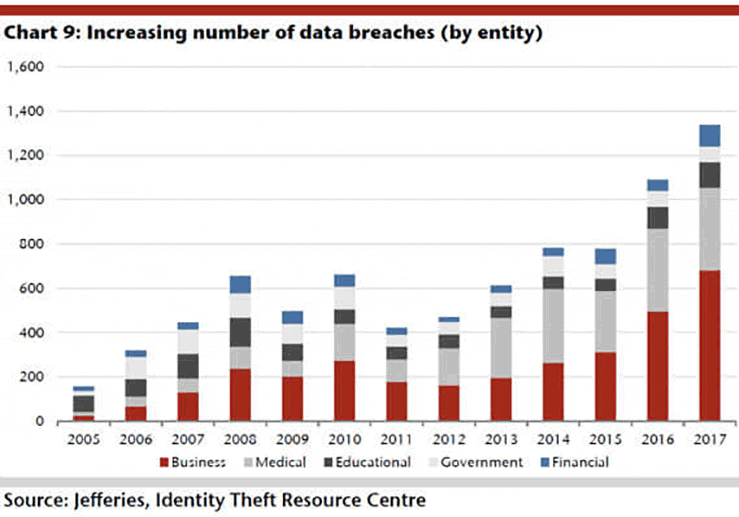
Article
5 Reasons Why Data Privacy and Compliance Matter in Digital Marketing
PUBLISHED:November 22, 2022
UPDATED:September 5, 2024
A lot has changed in the world of data privacy. This is no longer something that’s ‘good to have’ to make people feel better about your brand. Ever since privacy data regulations were introduced, it has become a business imperative.
But, it’s not just law compliance that you should be considering here.
Consumers today are more aware and cautious than they’ve ever been. Research shows that nearly all (97% of consumers) are concerned about protecting their personal data. This just adds to the pile of reasons why you should take data privacy seriously in digital marketing.
Brands today go above and beyond to show their targeted audience that they’re safe, prioritizing privacy as one of the best ways to secure more leads.
If you want to join in on the trend, you should know what data privacy is and how it can improve your digital marketing efforts. Our article will explore exactly this.
Understanding data privacy and compliance
Data privacy refers to the secure handling i.e. processing and use of data. Here is what data privacy addresses today:
- How data is collected/ stored
- If consumer/ personal data is shared with third parties
- Regulatory laws concerning the privacy of data such as the GDPR and CCPA

Data privacy is the consumer’s right to decide how companies can use their data.
Why data matters to digital marketers
In the world of digital marketing, data is more than just a means to process a transaction. It is at the basis of the marketing ecosystem. Some of the reasons for this are:
- Data can improve the customer experience. Thanks to data, marketers can offer a more personalized experience and unify their strategies across many channels and touchpoints.
- Data allows businesses to advertise better. Advertising is much more effective when it’s targeting the right audience and personalized to meet their needs.
- Data is vital for analytics and measurement. Digital marketers base most of their strategies on information analysis. They need data to analyze and measure to see how well their current efforts are succeeding, and what they can do to improve them. From customer purchasing behaviours to demographics to bounce rates, it all helps them create strategies that better resonate with buyers.
Since the consumer is asked to provide personal, financial, demographic, and other information, it is only natural that they can decide how their information will be used.
Thankfully, there’s a way to do both – respect data privacy and use it to target consumers.
Consent management and data privacy
The data protection environment has changed tremendously in just a few years. It was in 2016 when the set of regulations called GDPR showed up in the European Union. Once it was passed in 2018, many companies around the world followed suit. The goal was the same – to allow users to opt-in to the collection of their data and set in motion regulations to identify and protect consumers’ privacy rights.
Many of the regulations were prompted by a series of scandals that affected consumers. Today, one of the most important rules for data privacy is consent management. If you take a look at Osanos consent management guide, you’ll learn that the key to a consent management framework is to ensure compliance with data privacy laws like the CCPA and the GDPR.
If you could stop collecting data, it would be the safest solution. However, this is not a viable option. Digital marketers rely on data for their strategies – and your business’ success is highly dependent on it.
So, what can you do?
Every business today needs to be compliant with regulations to avoid hefty penalties, but also retain its reputation. Yes, collecting data is an amazing way to boost your digital efforts but before anything else, you need to make sure that you are compliant.
Osano’s No Fines, No Penalties Pledge will help you ensure that your website is compliant with the regulations your company needs to follow. If you get a platform-related fine, Osano guarantees to cover the expenses.

The demise of the cookie
As a response to privacy requirements, search engines made significant changes in recent years. Firefox already blocks cookie tracking by default, and Google announced the same change by late 2023.
Third-party cookies have had an inherent conflict with privacy laws, so we’d be remiss if we didn’t address their impending death. Cookies are bits of code that contain data about a website visitor, used extensively by digital marketers to track consumers as they navigate the Web.
These are great for marketing, but the problem with them is that they make it hard for users to control the data they share. Marketers who relied on this method – and that’s most of them – to target their campaigns find this information particularly concerning.
But, there’s no reason for it to be so. Retargeting without cookies is now more than possible. Pathmonk’s cookieless technology has already resulted in less ad spend and more conversions. This refers to using other sources to gather data, including first-party data, collected and controlled by companies. First-party data might include everything from past interactions to purchase history to behaviour data.

Why data privacy and compliance matter
If you work in digital marketing, data privacy should be at the top of your priorities. Here are the reasons why.
1. Data breaches can kill your business
Data breaches are more frequent than ever.

It’s not just the customer that suffers when cyber criminals hack your website. In case a data breach occurs, you don’t just need to worry about regulations compliance. Very often, companies that don’t protect data put their own intellectual property and trade secrets at risk.
Research shows that 1 in 8 businesses fail because of data breaches. Whether it is the sizeable penalty or lawsuits that kill your business – or the destroyed reputation – or the misuse of your organization’s data, all of it is bad for business!
Let’s consider an example here.
In May 2019, the First American Financial Corporation was said to have leaked the sensitive records of 885 million users. This included their wire transactions, social security numbers, bank account records, and other documentation they submitted for their mortgages.
This is an example of corporate negligence. As a result, the corporation lost the trust of many of its consumers.
2. A mistake can cost you your customers’ trust
Digital marketers today are obsessed with privacy data – and not only because mishandling the information their customers provide is illegal. They do this because poor handling of data is bad for business.
Take, for instance, the very big scandal with the company Sleep Number from 3 years ago. A consumer found a passage in their privacy policy stating that the smart beds this company sells ‘might record you while sleeping’.
Yes, the policy stated the reasons for this – they would record consumers to detect sleep conditions like snoring. Still, you can imagine how people felt about this – someone recording them while they sleep!
Soon after, the company claimed that they were solely considering this, but haven’t implemented it yet. Even though this was the case, this mistake cost Sleep Number the trust of many consumers
3. Not protecting data can prompt costly lawsuits
You can’t lie about protecting your consumer data and expect them to let it slide. When consumers find out that you haven’t done everything you’re supposed to protect their data, they’ll get enraged – and press charges.
This happened to Everalbum Inc, a company that deceived its users and improperly retained their videos and photos even after they deactivated their accounts.
In the FTC complaint against the company, Everalbum used the photos from consumers of the app ‘Ever’, which shut down, to develop facial recognition technologies for consumers of ‘Ever AI’, the same enterprise under a different name.
This ended in a costly settlement.
4. Data privacy can give you a great competitive advantage
It’s not just about checking those compliance boxes. People today are very worried about security risks and online privacy. As a digital marketer, it is your task to instil trust in your consumers. Demonstrate that your company truly cares about their privacy and carefully handles their data, and you’ll get a significant advantage over the competitors that don’t care as much.
5. Non-compliance costs a fortune
On average, organizations lose $5.87 million in revenue due to one non-compliance event. The fines of GDPR start at 2% of a company’s annual revenue for corporate abuses or disclosure of user information. This accounts for a minimum of $11 million!
If you think digital marketing costs money and takes a lot of time, imagine how much your company will waste if you aren’t compliant. Being compliant with laws and regulations helps you keep your business up and running, and you can allocate the funds you’ll save to your digital marketing goals.
How well are you handling data privacy?
Hopefully, these reasons are compelling enough for your company to invest more effort and time into data protection. Everything at your company depends on it, including your marketing success and your reputation!
Author bio
Nadica Metuleva is a freelance writer who’s passionate about creating quality, original content. She holds a Master’s degree in English teaching and a Bachelor’s degree in translation. With 8 years of experience in the freelance writing industry, Nadica has become proficient in creating content that captivates the audience, drives growth, and educates. You can find her on LinkedIn.
If you would like to write for us, please read this article on guest blogging first.
